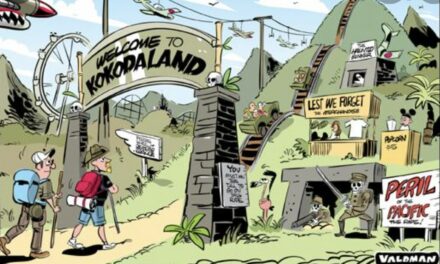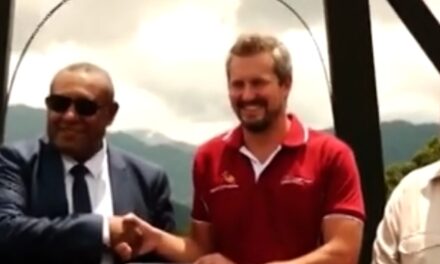More than a decade before invasive social media introduced a new level of nothingness into our lives the Australian newspaper published an article titled ‘Youth and the Challenge of Change’.
“Nothing prepared us for the depth of the children’s fear of the future, their despair,’ the authors wrote.“The cultural decay of Western societies is evident from an array of social trends – the increase in youth suicide; the high, and perhaps still increasing, incidence of serious drug and alcohol abuse; the sharp rise in crime rates in recent decades; the increasing incidence of mental illness such as depression; the emergence of mass personal obsessions, such as dieting among adolescent girls; the widespread pessimism, cynicism, confusion, social alienation and sense of insecurity and powerlessness revealed by surveys.
“When a culture fails to imbue people’s lives with a sense of worth and meaning then they must attempt to find these qualities as individuals. It is a task that many find extremely difficult, even impossible. People want to know what is expected of them; they need to have something to believe in. This absence of belief in much beyond ourselves, and the subsequent lack of faith in ourselves are undermining our resilience, our capacity to cope with the more personal difficulties and hardships of everyday life.
“It may be, then, that the greatest wrong we are doing to our children is not the fractured families or the scarcity of jobs (damaging though these are), but the creation of a culture that gives them nothing beyond themselves to believe in, and no cause for help or optimism.”
The report generated heated agreement amongst responsible parents throughout the nation. But rather than heed the message the level of despair among many of those born into our progressive libertarian society continues to degenerate.
Respect for self and society is a failed concept amongst the growing ranks of our disenfranchised underclass. Drive-by shootings, cyber bullying, trolls, mind altering drugs, body altering steroids and the emergence of a random ‘king-hit’ culture are symptoms of their alienation from our traditional values. The old adage that ‘crime doesn’t pay’ no longer rings true to those who witness criminals on disability support pensions driving luxury sports cars and convicted drug smugglers being paid millions for their stories.
Much of the cause of our social decay is rooted in innocuous constructs such as Standing Committees on Social Issues in the NSW Legislative Council and the Australian Senate. Over the past two decades these committees have been carefully stacked with ‘social progressives’ from the left of both political parties who combine with Green extremists to command a majority. Whilst public hearings allow those with vested interests to express their views the final report on contentious social issues is a line-by-line battle between the conservative minority and the progressive majority of these committees behind closed doors.
Once tabled in the Parliament these reports become the catalyst for social change that has devalued the traditional family unit and disempowered the two most important influences in a child’s development i.e. parents and teachers. They have also led to the gelding of our law enforcement agencies, our justice systems and our corrective service institutions. Personal responsibility has been sacrificed on the altar of individual ‘rights’.
As a result, the underclass is now virtually untouchable and the dysfunctional environments they inhabit continue to sink further into the social morass of drug addiction, alcohol abuse, domestic violence and crime. There are no behavioural boundaries in these enclaves and no hope for social order until we re-empower our traditional social custodians and provide avenues of hope for the disadvantaged.
Voluntary Civil Service Scheme
One such avenue is a voluntary national civil service scheme designed to break the cycle of despair, restore personal pride and contribute to nation building. The induction phase of the scheme would be conducted in rural training camps based on old fashioned army discipline (zero tolerance for drugs, insubordination, etc), team sport, physical endurance, remote area First Aid, bush skills and Australian history.
The next phase would include skill training for a civil service of their choice – rural fire services, emergency services, national parks, Red Cross, surf lifesaving, coastal protection, etc.
Graduates would then work in their chosen field for a period of 12 months, wear a distinctive uniform (Akubra, outdoor adventure shirt with a ‘Civil Service Volunteer’ badge, moleskin trousers and RM Williams boots) and be paid a rate equivalent to an army Private. After completion of their service, they would receive a Diploma of Civil Service, a National Civil Service Medal and be permitted to march with their peer groups on ANZAC Day. They would also qualify for financial grants and continue to be paid the equivalent of an army Private if they chose to enrol in TAFE or University courses to continue get a trade or professional qualification as part of their ongoing personal development.
Our political leaders should not be deterred by the cost of such a scheme because the social cost of not providing avenues of hope for our disadvantaged underclass will be far higher.
Need for Paradigm Change from ‘Drums of War’ Approach
The recent announcement that A boost of Australian Defence Force personnel from 60,000 to about 80,000 in a $38 million expansion announced by Prime Minister Scott Morrison in the heat of the current election campaign has drawn a cynical rebuke from retired Brigadier, Adrian D’Hage AM MC.
According to D’hage:
‘the elephant in the room? With low unemployment, Defence traditionally struggles to meet targets as it is. Another 20,000 busting to get in is la la land. Biggest since Vietnam? Back then, National Service made the numbers possible. Would this be on if there wasn’t an election?’
D’Hage is well qualified to vent his scepticism.
In October 2000 he left the army to pursue a writing career, moving to Italy to complete The Omega Scroll, a fictional thriller centred on the Catholic Church. He holds an honours degree in theology. He began his studies believing in Christianity and graduated with no “fixed religion.” He has a Bachelor of Applied Science (Dean’s Award) in oenology from Charles Sturt University. In 2016, he graduated from the Australian National University with a Doctor of Philosophy on ‘The Christian Right in American Politics and Support for Israel’.
D’Hage’s books include The Omega Scroll, The Beijing Conspiracy, The Maya Codex, The Inca Prophecy, The Alexandria Connection, and The Russian Affair.
D’Hage’s scepticism is well justified and should cause us to consider other ways to engage our young people by providing them with an opportunity to transition out of their current circumstances through a voluntary civil service scheme.
Many of those who served during the conscription based National Service scheme to support the Vietnam War in the mid-60s will attest to the fact that it broadened their horizons and provided opportunities for personal growth they would not otherwise have had.
I was one of those!
Rather than beat the drums of war in the heat of an election campaign we would be better served if we looked at alternative ways of inculcating the value of national service amongst our young people.








